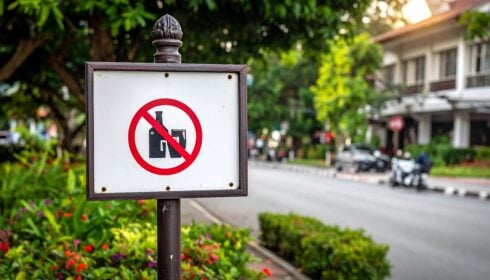THE Catalan regional government is expected today to declare an emergency due to extreme drought, imposing water restrictions that will affect six million people living in a total of 202 municipalities, including the region’s capital, Barcelona.
These areas are already in a ‘pre-emergency’ stage, thanks to a lack of rain and the dangerously low levels of water reserves in reservoirs.
The emergency situation will swing into action once these water stores in the Ter-Llobregat system fall to 16% of their capacity, according to Spanish news agency Europa Press. A total of 37 Catalan municipalities are already in a state of emergency.
In the first phase of the emergency situation, the use of water will be limited to 200 litres per inhabitant per day. This will fall to 180 litres in phase two, and then 160 in phase three should the crisis deepen.
Restrictions, which will be announced by the regional government, are likely to include a ban on the cleaning of any kind of vehicle, apart from when it is in a cleaning business that recycles the water. Showers and foot showers on beaches will be turned off, and temporary ice rinks or foam parties will also be prohibited.

Plants and trees can be watered to prevent them from dying, but only using reclaimed water or groundwater. What’s more, the total or partial filling of artificial lakes or ornamental fountains will also be prohibited, apart from when the water is used to protect native or endangered species.
The first phase will also see the use of showers in gyms, swimming pools and sports clubs partially closed. In the case of installations where grass must be watered, such as football pitches, the water saved from shower closures can be used.
The deputy premier of the Catalan regional government, Laura Vilagra, told state radio broadcaster RNE that the crisis would not affect the region’s vital tourism sector, and that hotel water supplies would not be cut off even if the situation got worse.
She did, however, float the possibility of buying in water.
“If [water] has to arrive via means that have never been used before in Catalonia, well we will have to do so,” she said, opening the door to bringing in supplies via ships.
Read more:
- Drought latest in Spain: Andalucia approves €217m plan – these are the measures being prepared
- Sahara dust and an anticyclone: The latest weather forecast for southern Spain
- Remembering Spain’s horror drought of 1995: How the streets of the Costa del Sol ‘stank of sewage’
Click here to read more News from The Olive Press.







